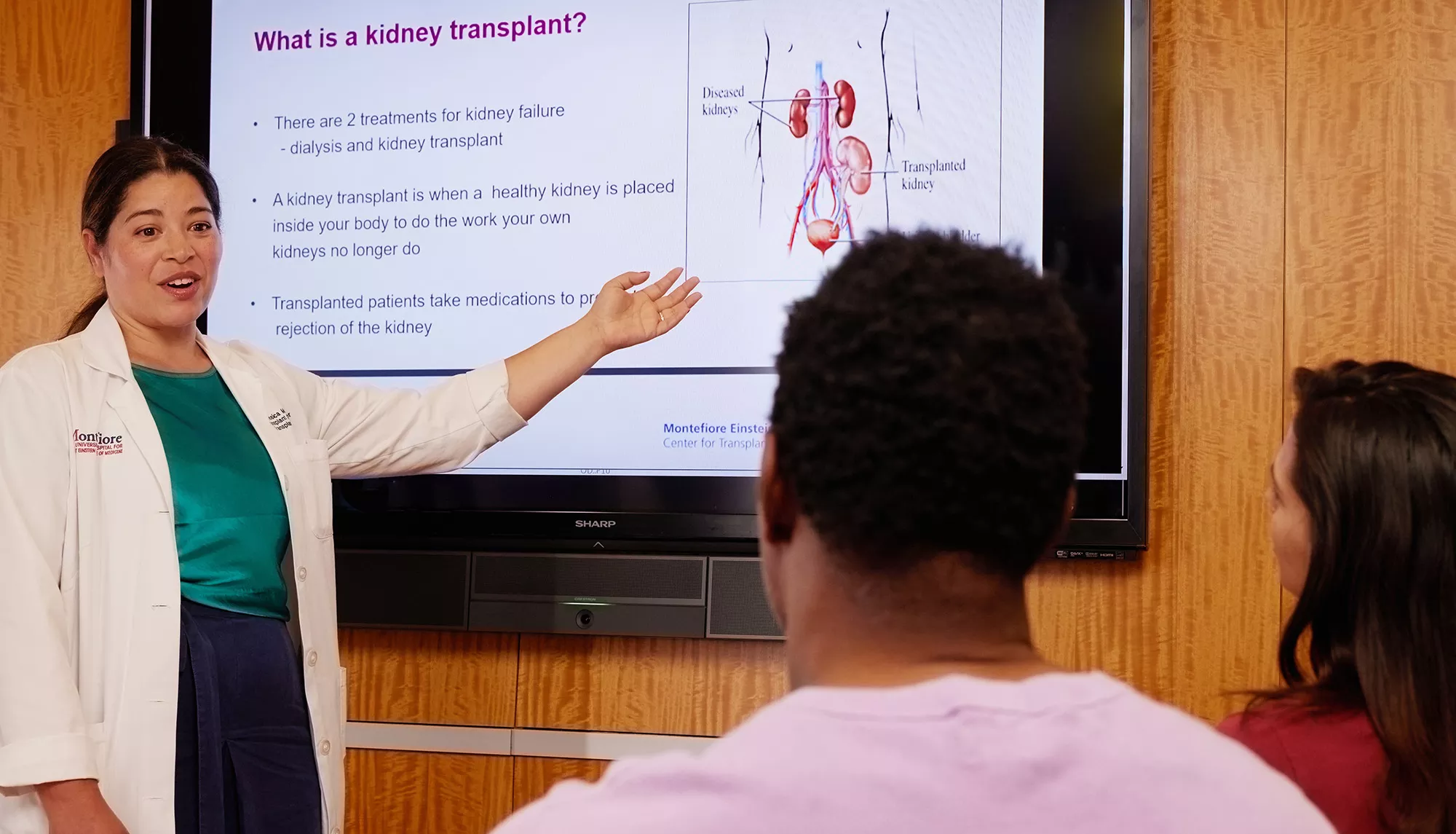What to Expect
Our multi-disciplinary team of experts provides comprehensive care during every stage of liver transplant—from diagnosis through recovery. The process of receiving a transplant can be overwhelming and we understand you will have many questions and concerns. Our team has extensive experience and we are always available to help you through the process and provide you with all the information you need.
Evaluation & Education
The first step in the liver transplant process is to undergo an evaluation to make sure that transplant is the best option for you. Your doctor will order blood tests to check your heart and other organs, as well as evaluate your mental and emotional health. This helps ensure that you’re prepared for your recovery—with a solid support system in place. During your evaluation, you will meet with multiple team members, including a transplant surgeon, transplant coordinator, and social worker, who will provide you further resources to help you understand the details of your surgery.

Placement on the Organ Donor List
Once it is determined that you are a candidate for liver transplant, you are placed on the national waiting list for a deceased donor organ. Placement on the waiting list is prioritized by your MELD (Model for End-Stage Liver Disease) score, which measures the health of your liver, as well as additional factors determined by UNOS (United Network for Organ Sharing) including blood type, distance between you and the donor organ, the size of the donor liver, and the severity of your condition. You may reach out to UNOS with any questions by calling 1-888-894-6361 or by visiting UNOS.org.
Transplant Surgery
During liver transplant surgery, the surgeon removes the diseased liver and replaces it with the healthy donor liver. The procedure can take up to 12 hours or longer. If you are on the waiting list for a donor liver, you will have your surgery as soon as the donor liver arrives at the hospital. If you are receiving a donation from a living liver donor, the surgery will be scheduled in advance.
Understanding the Risks
Liver transplant surgery carries several risks:
- Bleeding
- Blood clots in the liver’s blood vessels
- Damage to bile ducts
- Failure or rejection of the donated liver
- Infection
Recovery & After-Care
After transplant surgery, you will be monitored closely to ensure that your new liver is functioning properly. You will also need to take lifelong immunosuppressant medication, which prevents and treats organ rejection by reducing your immune system’s response to your new liver.
Receiving a liver transplant requires lifelong follow-up care. Throughout your recovery and as you return to daily activity, our transplant team will monitor you closely to ensure postoperative success. During the first year, you will be seen regularly for lab work and routine evaluation. These tests help determine how well your liver is functioning. As you continue to recover, our physicians will provide comprehensive, continuous care to help return you to optimal quality of life.






